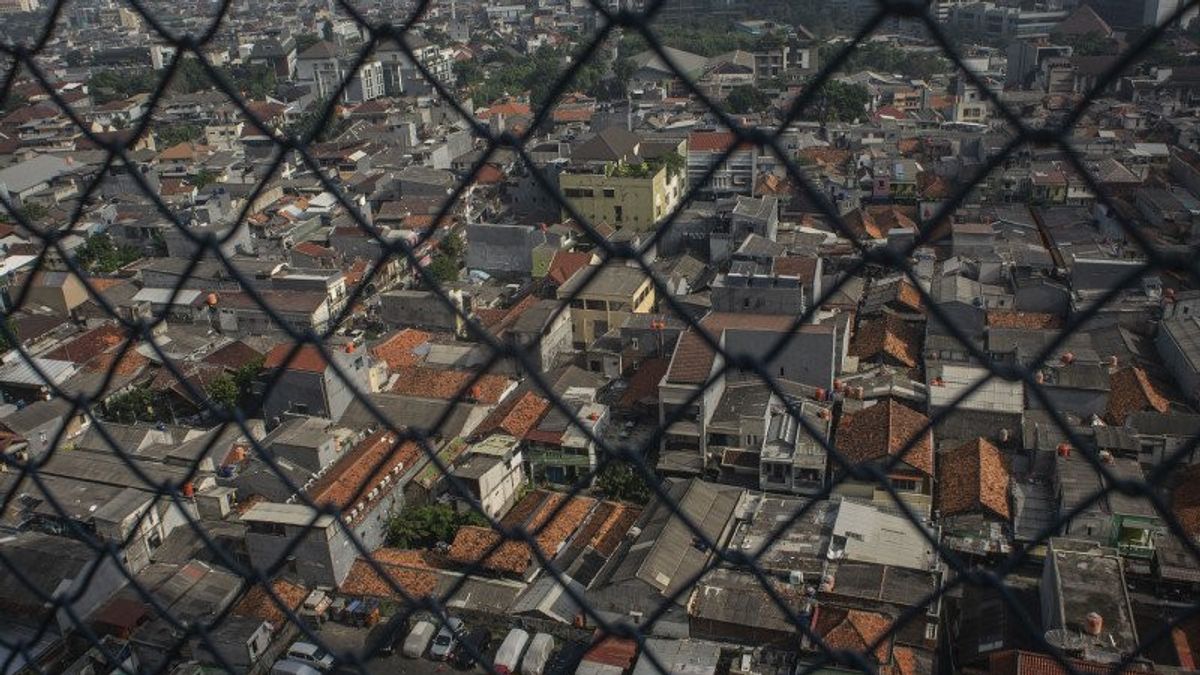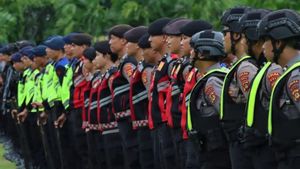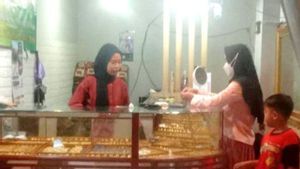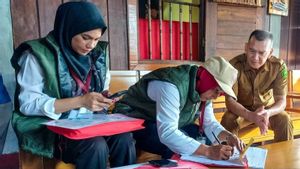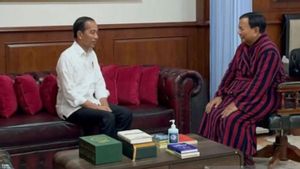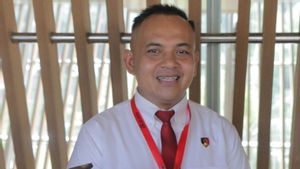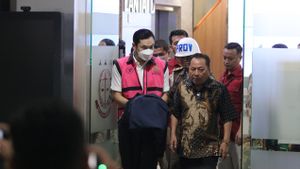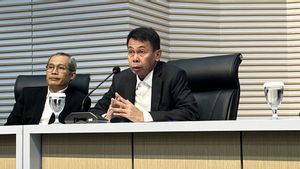JAKARTA - The population density in DKI Jakarta is 118 times the national average based on the results of the 2020 local government data collection.
Reported by Antara, Sunday, November 29, DKI Jakarta Governor Anies Baswedan stated that DKI Jakarta as a province in Indonesia has a small area when referring to Governor Decree Number 171 of 2007 concerning Arrangement, Determination of Boundaries and Areas.
The area of DKI Jakarta is around 662.33 square kilometers with a population of 11,063,324 people by 2019, including 4,380 foreign nationals (WNA).
Anies said, the current population density of DKI Jakarta has reached 16,704 people per square kilometer, or the equivalent of 118 times compared to Indonesia's population density of only 141 square people, the result of population projections in 2020 divided by the land area of Indonesia.
"In this place there is density, there is complexity, there is a problem of spatial information that is very complex. Therefore, on January 17, 2018, we launched a program called Jakarta One, the principle is One Map, One Data, One Policy, which integrates all taking decisions based on data, "said Anies.
This statement was made by Anies in a statement to journalists when the DKI Jakarta Provincial Government won two national awards at the 2020 Bhumandala Award.
DKI won the Bhumandala Kanaka (Gold Medal) and Bhumandala Kencana (Best Geoportal) in the Provincial category from the Indonesian Geospatial Information Agency (BIG).
This award was received directly by the Governor of DKI Jakarta, Anies Baswedan at Hotel Borobudur, Central Jakarta.
"We place the Bhumandala Award not only as an award for us to pursue, but for an opportunity to learn from each other and the process to benefit us," said Anies when receiving the award.
Head of the DKI Jakarta Province One Stop Investment and Integrated Services (DPMPTSP), Benni Aguscandra, expressed his appreciation to the DKI Jakarta Geospatial Information Network Node, Jakarta One, which is managed by the DKI Jakarta Province Cipta Karya, Spatial Planning and Land Service (DCKTRP) for the highest achievement in the 2020 Bhumandala Award.
"I congratulate DCKTRP as a Leading Sector, being able to motivate, inspire, strengthen, and increase the enthusiasm of other agencies in building network node elements so that they can be nurtured in a sustainable, active and operational manner," said Benni.
Benni added that the Jakarta Geospatial Information Network Node One has been integrated with the Licensing and Non-Licensing System in DKI Jakarta, JakEVO and has supported several strategic activities and integrated services in DKI Jakarta Province.
"Particularly in extension of licensing to applicants related to zoning, whether the location / land requested by the permit / non-licensing applicant is permitted or not allowed to carry out various activities in accordance with Regional Regulation No.1 of 2014 concerning Detailed Spatial Planning and Zoning Regulations," he said.
"The Jakarta One system has been integrated with JakEVO in providing real time and comprehensive information on the provisions in licensing and investment potential in Jakarta, thus supporting us in providing consultation and assistance to entrepreneurs who are about to start a business and invest in Jakarta so that investment activities are carried out. can be realized, "said Benni.
In addition, the Jakarta One System has also been used directly by residents of the Capital City, especially applicants for permits and non-permits in the DKI Jakarta area by accessing the https://jakartasatu.jakarta.go.id page.
The Jakarta One system contains information on spatial aspects in a certain coordinate system or the Universal Transverse Mecator (UTM) coordinate system which is very useful in holistic urban planning, providing the space needed by the community including also paying attention to environmental aspects.
So that the government can strive for collaboration in all aspects based on a regional approach.
"With the Jakarta One System, it further proves that managing licensing and non-licensing in DKI Jakarta can be done independently, without using the services of a third party, because Managing Own Permits is Easy," said Benni.
The English, Chinese, Japanese, Arabic, and French versions are automatically generated by the AI. So there may still be inaccuracies in translating, please always see Indonesian as our main language. (system supported by DigitalSiber.id)
